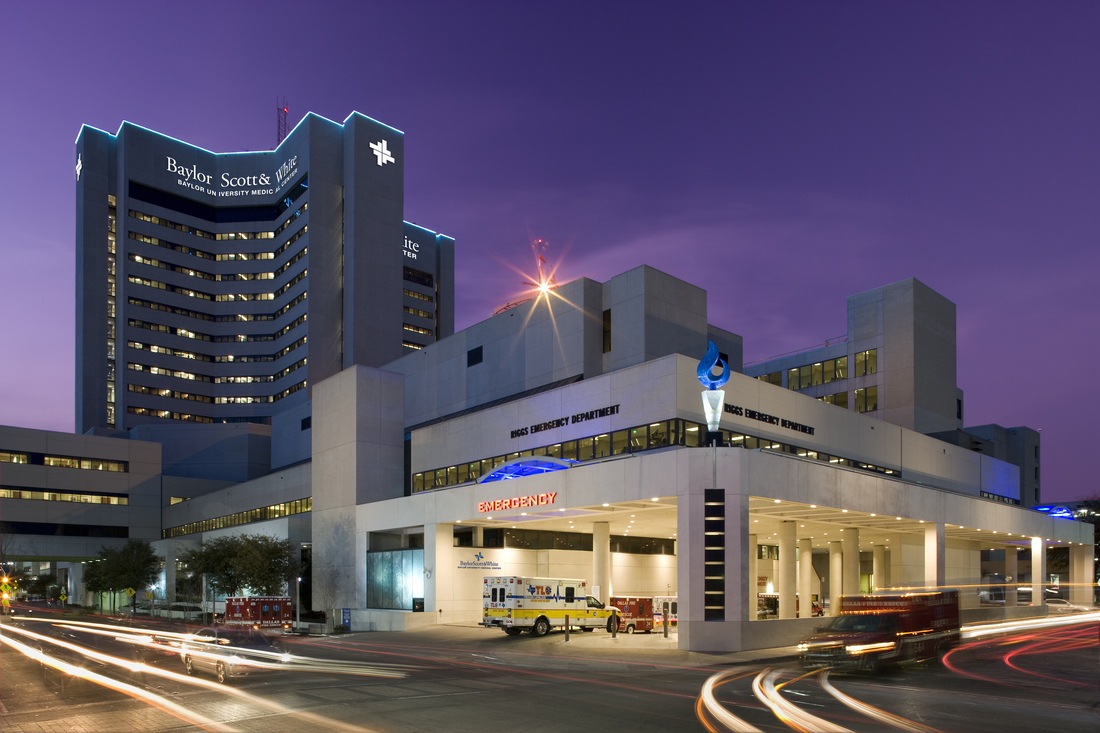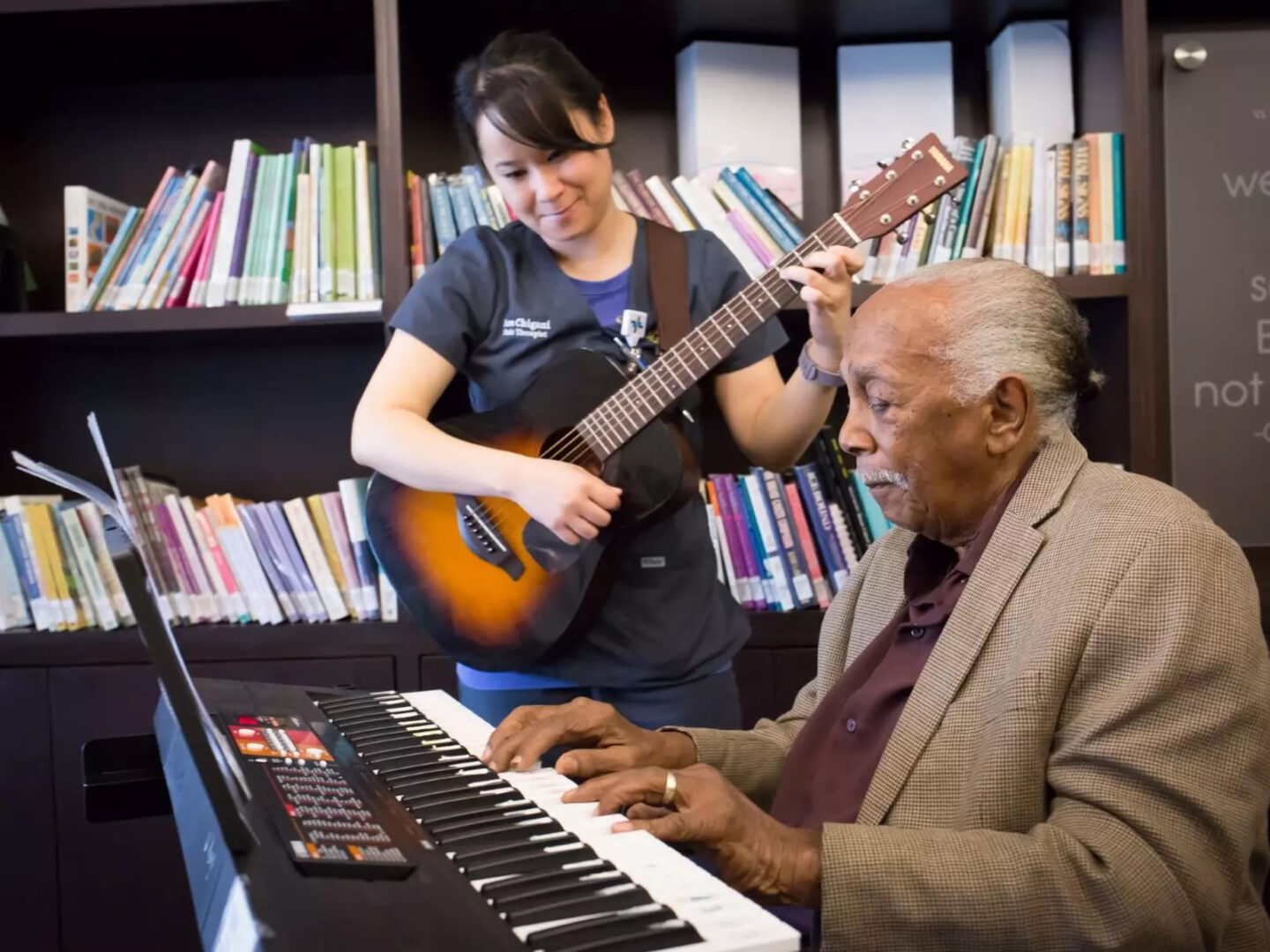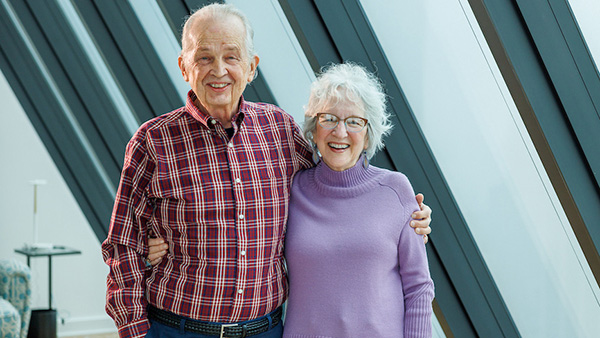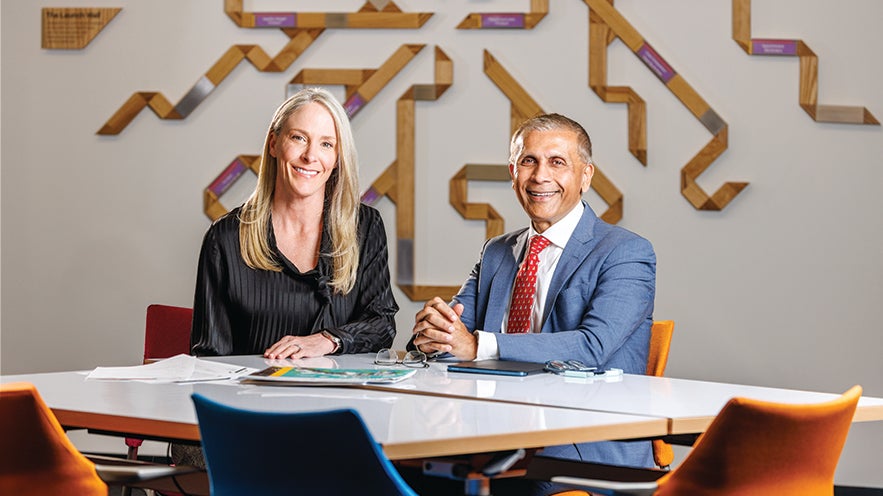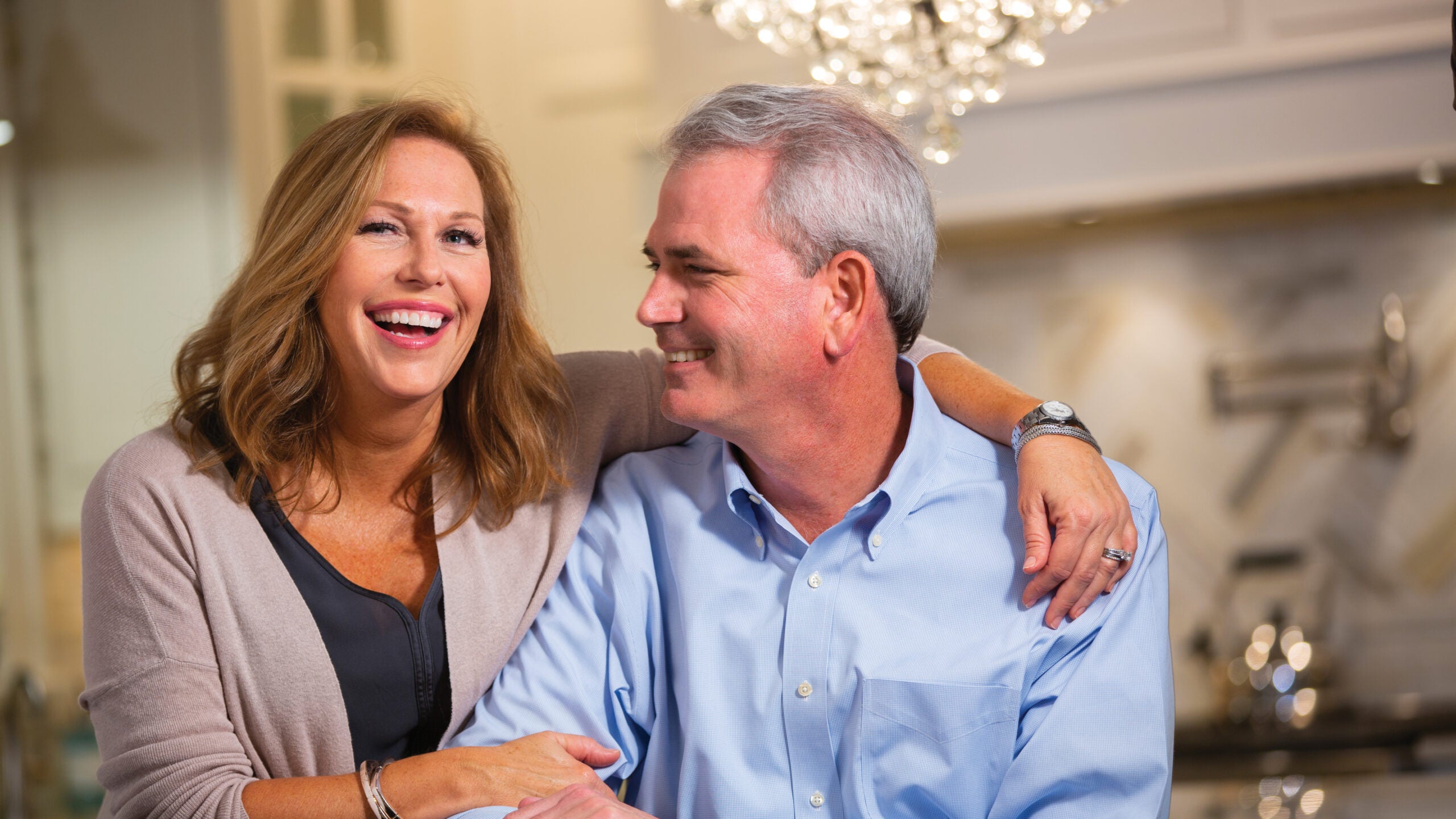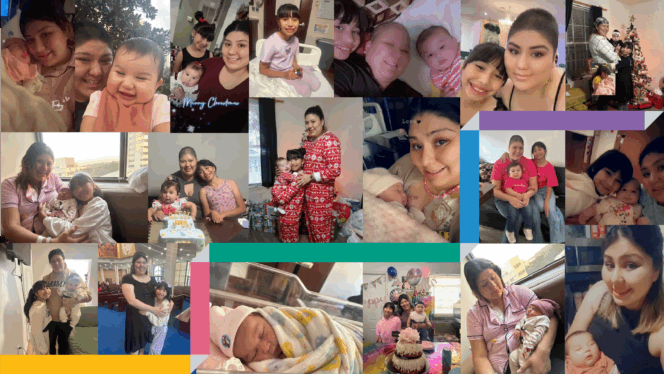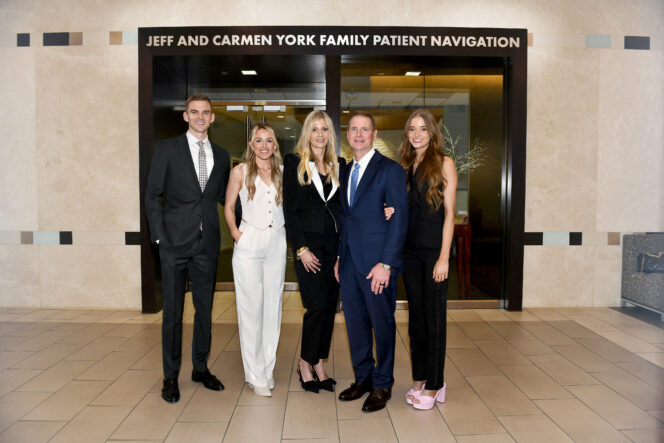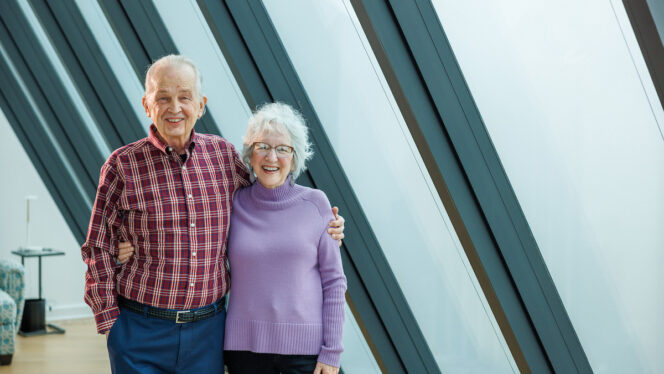In this Article
For patients battling metastatic triple-negative breast cancer (TNBC), one of the most aggressive forms of the disease, options are often limited.
In this Article
Joyce O’Shaughnessy, M.D., an oncologist on the medical staff at Baylor Charles A. Sammons Cancer Center at Dallas and the holder of the Celebrating Women Chair in Breast Cancer Research, has worked tirelessly to help move research and treatment options forward for these patients.
“The goal here is to aggressively get novel treatment approaches and clinical trials to TNBC patients,” Dr. O’Shaughnessy said. One of her newest partners in the fight against metastatic TNBC is Carrie Adams of Fort Worth. The 52-year-old mother of two was diagnosed with triple negative breast cancer in April 2011 and was also found to carry a BRCA2 mutation. Carrie’s diagnosis prompted her oncologist to recommend she undergo a CT scan as an added precaution.
During the testing, a uterine PEComa was detected. PEComa is an especially rare soft tissue tumor known to develop from cells called perivascular epithelioid cells (PEC), which surround and feed off of blood vessels. Carrie opted for a double mastectomy and a radical hysterectomy followed by six rounds of chemotherapy.
“I remember the nurse navigator telling me to think of my breast cancer like a turtle in relation to melanoma, which is like a jaguar,” Carrie said. “Even though what I had was an aggressive form, it was slow to progress. But all I could think about was wanting to see my children graduate from high school. I knew I had to approach the cancer hard and keep moving forward.”
Carrie’s journey
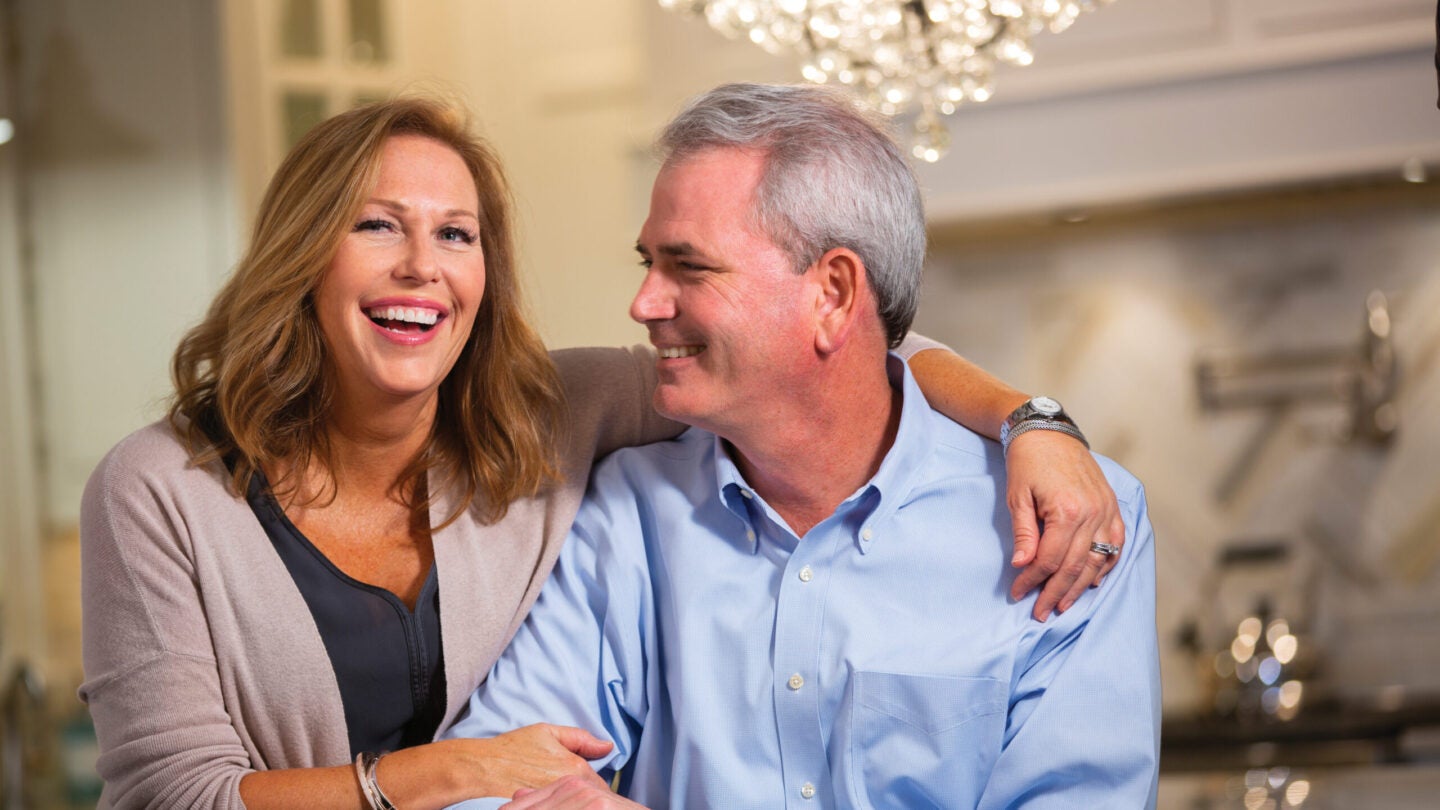
After several years in remission, Carrie learned in January 2014 that her breast cancer had returned as a lung metastasis. Now living with stage 4 metastatic triple-negative breast cancer, Carrie sought out others with similar diagnoses for suggestions on the best doctors to see. Carrie was well aware that the median survival for women diagnosed with stage 4 TNBC is less than two years, but she had faith. Four years after receiving a treatment customized for her, Carrie is cancer free and considered to be an exceptional responder.
“The hypothesis is that something about the therapy she received in 2011 sensitized the cancer cells and made our course of chemotherapy more effective,” Dr. O’Shaughnessy explained. “We started with a priming agent once used to treat bone cancer, followed by chemotherapy. The combination was able to repair Carrie’s cancer cells in the lung, causing them to become more fragmented and more vulnerable to being killed.”
“I am so incredibly blessed and grateful to be alive and healthy to watch my children grow, and to enjoy empty nesting with my amazing husband. Why can’t there be more exceptional responders like me? The only way to find out is through the type of research that Dr. O’Shaughnessy and Baylor Sammons Cancer Center are doing,” Carrie added.
Progress relies on philanthropy
Through philanthropic support, a new clinical trial to try to replicate Carrie’s success for other women with metastatic TNBC could help find solutions for some patients whose TNBC is unresponsive to standard treatments. This trial will test the hypothesis that certain investigational drugs can switch TNBC cells from a state of resistance to chemotherapy and immunotherapy to one that is highly sensitive to the killing effects of these therapies. To date, more than $715,000 has been raised for this $1.5 million project.
For more information, contact
